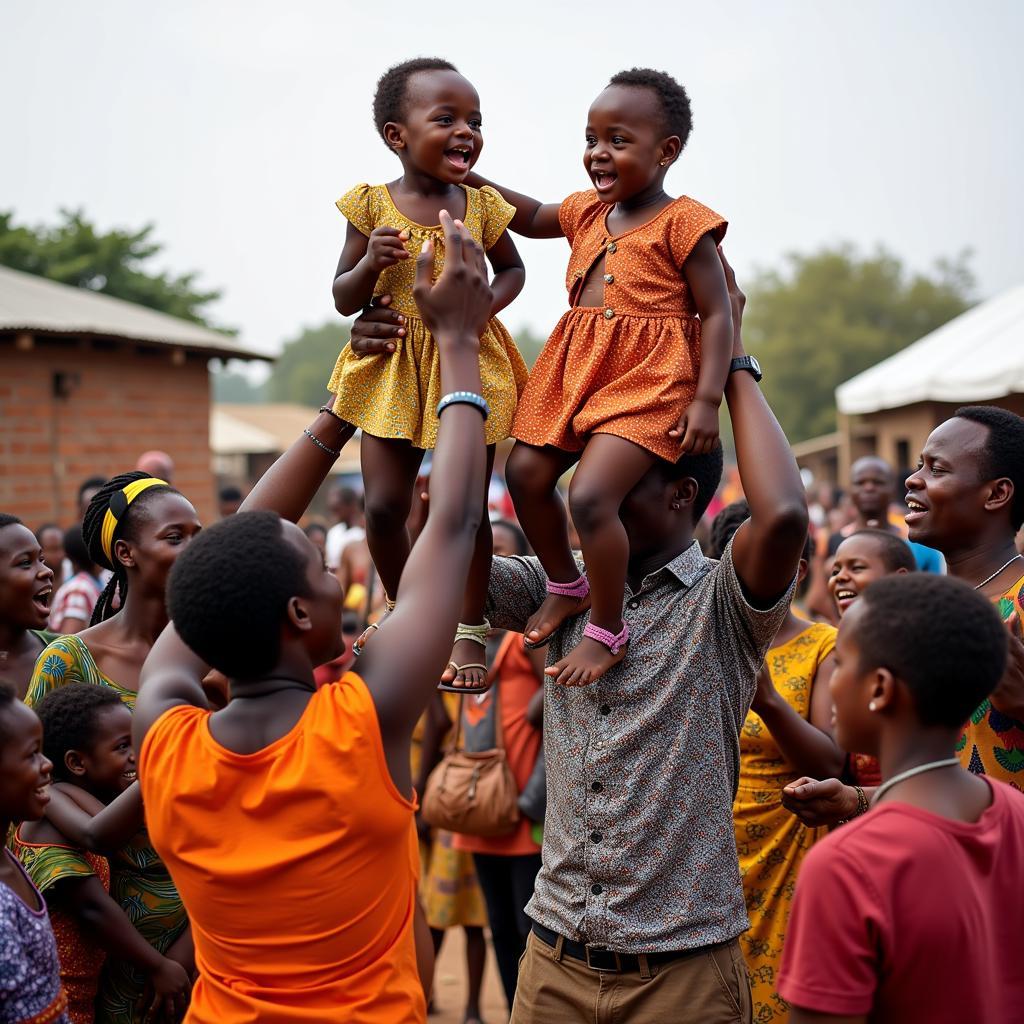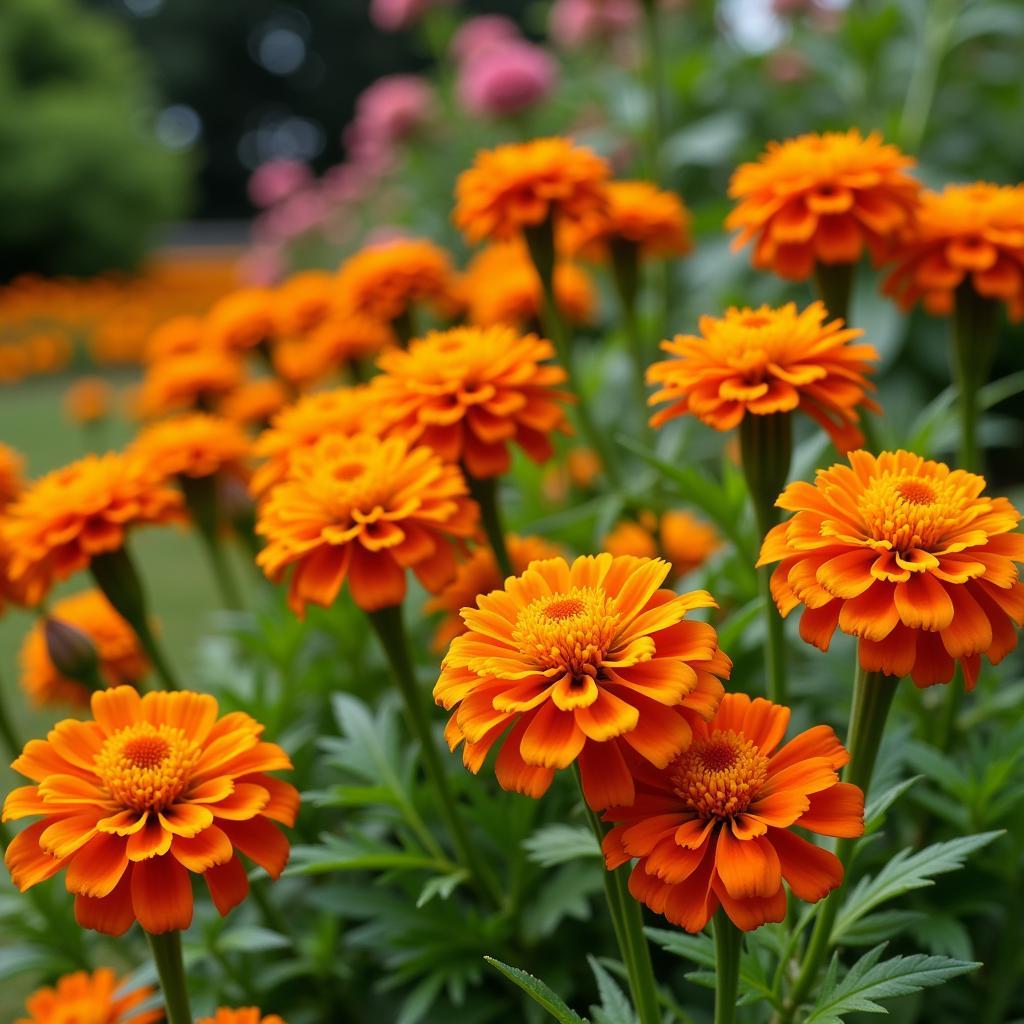African Girl Boy Twins: A Celebration of Double Blessings
African Girl Boy Twins hold a special place in many cultures across the continent. The arrival of twins, especially a girl and a boy, is often seen as a unique blessing, imbued with cultural significance and sometimes even mystical interpretations. From traditional naming ceremonies to specific roles within the community, these double blessings are often celebrated with unique customs and traditions.
The Cultural Significance of Twins in Africa
Across various African societies, twins are often regarded as more than just double the joy. They represent a powerful symbol of fertility, abundance, and good fortune. In some cultures, they are believed to possess spiritual powers, acting as intermediaries between the physical and spiritual worlds. Their birth is often met with elaborate ceremonies and rituals, reaffirming their special status within the community. Specific traditions vary greatly between regions and ethnic groups, showcasing the diversity of beliefs and practices across the continent.
Traditional Beliefs and Practices Surrounding African Girl Boy Twins
Many African communities have unique beliefs associated with the birth of twins, particularly girl-boy twins. Some see them as a sign of balance, representing the harmonious union of male and female energies. Others believe that they bring good luck and prosperity to the family and the entire village. These beliefs are often reflected in the special names given to the twins, the rituals performed during their naming ceremonies, and the roles they are expected to play in society.
 African Girl and Boy Twins Celebration
African Girl and Boy Twins Celebration
In some cultures, specific taboos surround twins. For instance, it might be considered bad luck to praise their beauty or to differentiate between them. These customs are often deeply rooted in traditional beliefs and aim to protect the twins and ensure their well-being.
Naming Traditions for African Girl Boy Twins
Naming traditions for twins in Africa are often rich in symbolism and reflect the cultural beliefs surrounding their birth. Many names have specific meanings related to their twin status, the order of their birth, or the circumstances surrounding their arrival. For example, in some West African cultures, the first-born twin, regardless of gender, might be named Taiwo, meaning “the first to taste the world,” while the second-born is named Kehinde, meaning “the one who comes after.”
Unique Names and Their Meanings
Girl-boy twins might receive specific names that highlight their dual nature. These names often emphasize the balance and complementarity they represent. In some communities, they might be named after deities or ancestors, further emphasizing their spiritual significance. The naming ceremony itself is often a major event, involving the entire community and reinforcing the special place of twins within the social fabric.
The Role of African Girl Boy Twins in Society
Historically, twins in many African societies held special roles within their communities. Some were believed to have healing powers or the ability to communicate with the spirit world. They might have been designated as future leaders, priests, or priestesses. These roles varied depending on the specific culture and the beliefs associated with twins.
From Spiritual Leaders to Community Representatives
While some traditional roles might have diminished over time, twins continue to hold a special place in many African communities. They are often seen as symbols of unity and connection, and their unique bond is celebrated and cherished.
Modern Perspectives on African Girl Boy Twins
Today, while traditional beliefs still hold sway in many areas, modern perspectives are increasingly influencing the way twins are perceived and raised. Access to education and healthcare has contributed to a better understanding of the biological aspects of twinning. However, the cultural significance of twins remains strong, and many families continue to honor the time-honored traditions associated with their arrival.
Conclusion: A Continued Celebration of Double Blessings
African girl boy twins continue to be viewed as a special gift, a double blessing celebrated with unique customs and traditions. From their naming ceremonies to their roles within society, they hold a unique place in the cultural tapestry of Africa. Understanding the rich history and diverse beliefs surrounding twins provides a deeper appreciation for the vibrant cultures of this continent. African girl boy twins truly represent a celebration of life, fertility, and the enduring power of tradition.
FAQ
- Are twins more common in Africa? While some regions in Africa have reported higher twinning rates, it’s crucial to consider factors like accurate record-keeping and genetic predispositions within specific ethnic groups.
- What are some common names for twins in Africa? Names like Taiwo and Kehinde (Yoruba), Ibeji (Igbo), and Edidiong and Ekemini (Ibibio) are just a few examples.
- Do all African cultures celebrate twins in the same way? No, traditions and beliefs vary significantly across different ethnic groups and regions.
- Are there any negative beliefs associated with twins in Africa? While most cultures celebrate twins, some historical beliefs might have viewed certain types of twins with apprehension. These beliefs are less prevalent today.
- What is the significance of girl-boy twins in particular? They often symbolize balance, harmony, and the union of male and female energies.
For further assistance and information about African culture, please contact us at Phone: +255768904061, Email: kaka.mag@gmail.com, or visit us at Mbarali DC Mawindi, Kangaga, Tanzania. We have a 24/7 customer service team available. You can also find more articles on related topics on our website, exploring different aspects of African Life and traditions. We encourage you to explore and learn more about this fascinating continent.


